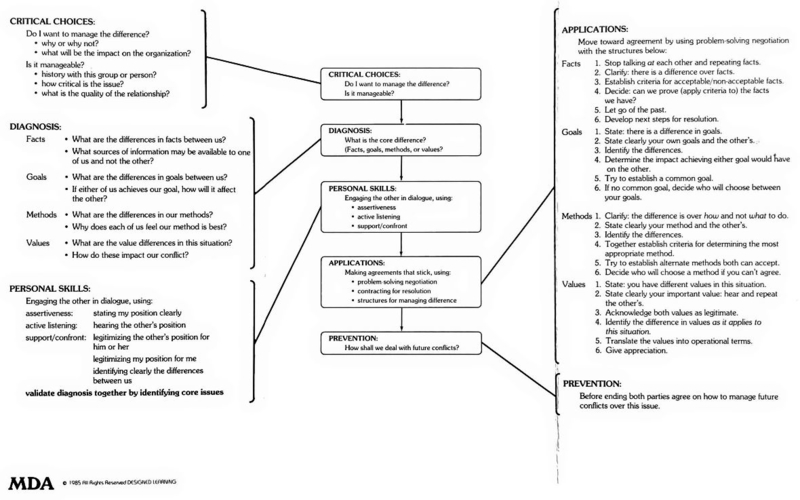
Click Image for Larger Version
Edward D. Winstead, J.D.
Today's
Political Situation
from the Perspective of a Mediator:
Mediation - Manage the Difference
I read with interest discussions from "news" sources. I prefer the term "propaganda" sources.
Most people seem to watch one TV news and castigate all the others. It is often what is NOT shown that causes the problems (such as the 2020 summer fires). None of the TV shows give much news about events happening around the world. Now, most seem to be propaganda.
I used to do Mediation. Part of that was Diagnosis. There are four parts: Facts, Goals, Methods, and Values. Many differences were resolved once both sides understood these aspects of each other and themselves. I see the public discussions lacking in understanding these concepts. As a result, there is no resolution.
A more fundamental question is whether the people involved want to maintain a relationship. Otherwise, why bother? Terminate the relationship. My assumption for most discussions is that everyone wants to maintain a positive relationship. We should be able to disagree on ideas but agree that we want to maintain relationships. Some relationships, such as political, cannot really be terminated. The other Political Party will still be there, and have to be dealt with.
Facts: What are the differences in facts between parties? What sources of information may be available to one and not the other? Or, are the "facts" really just assumptions.
Goals: What are the differences in goals between parties? If either party achieves its goals how will that affect both parties? How will achieving only some of each other's goals affect one or both? If no goals are achieved what are the consequences?
Methods: What are the differences in methods? Why does each party feel its methods are the best?
Values: What are the value differences in this situation? How do these impact the conflict? Do the parties know and understand each other's values?
(See the image below for an illustration and application of these concepts.)
In most discussions (newspaper editorials), all of these are missing. Most do not agree on the Facts of the Political or other situations. As long as the sources are different, there will not be agreement on what are "real" facts.
The Goals are different. For most, it seems to be "convince the others I am correct and they are wrong." A few seem more interested in presenting facts or convincing others of a position. Reading the Political Party platforms shows very real differences in party Goals. Broadly, I believe they are the differences between individualism and big brother control over citizen lives. Between individual responsibility and let someone else (government or a charity) do it for me. Between Capitalism and Socialism.
The Methods are different.
For some, Logic is
the method. For others, Emotion and Name Calling.
Logic requires acceptance of basic premises. Many of these are debatable
starting points.
Emotion is reacting at gut level with little thought other than, “I am right”
regardless of facts.
The Values seem different.
Are the
discussions over personalities or policies and actions?
If a person's traits are disliked does that make his policies and actions
unacceptable?
Or, if a person's traits are liked does that make his policies and actions
acceptable?
Or, if a person's traits are disliked does that allow acceptance of his policies
and actions?
I make the assumption that we all share basic values, such as the U.S. Army
Values. (See what this means at
https://caccapl.blob.core.usgovcloudapi.net/web/character-development-project/repository/a-brief-history-of-the-army-values.pdf)
Others have different values.
I submit that Republican and Democrat basic values are very different from each
other.
Values and assumptions are starting points for Goals and Methods.
In the previous presidential election, both
parties chased personalities rather than policies. That was the Goal. Facts
and the Goals of specific issues did not play much of a part in voter
consideration.
October 2, 2021
Personal observations and preferences:
I find that Fox commentary is of value. They
seem to show clips shown (showed in the New English) on other shows. But they
also tend to be one sided.
Other shows to watch are: Real American Voice and
Newsmax. Fox News online has some tidbits not often shown on TV. So does
Headlines. NPR tends leftist, but does have interesting commentary. "The Epoch
Times" (requires subscriptions), both online and paper versions, has in depth
articles and series. It leans towards the Right. I also like 2ndVote.com.
The qualifiers are always interesting and revealing. The "fair" election. The
"stolen" election.
The "incitement" to "insurrection." The "peaceful" fires
and "peaceful demonstrations."

Click Image for Larger Version
Return to Edward D. Winstead's Front Page